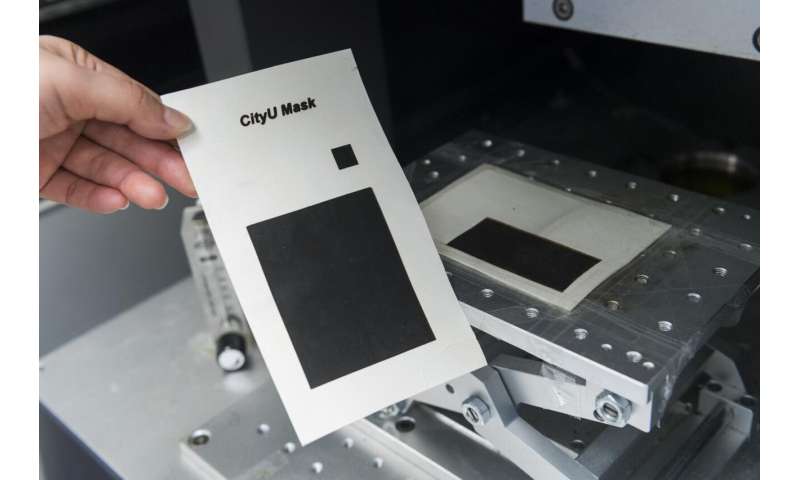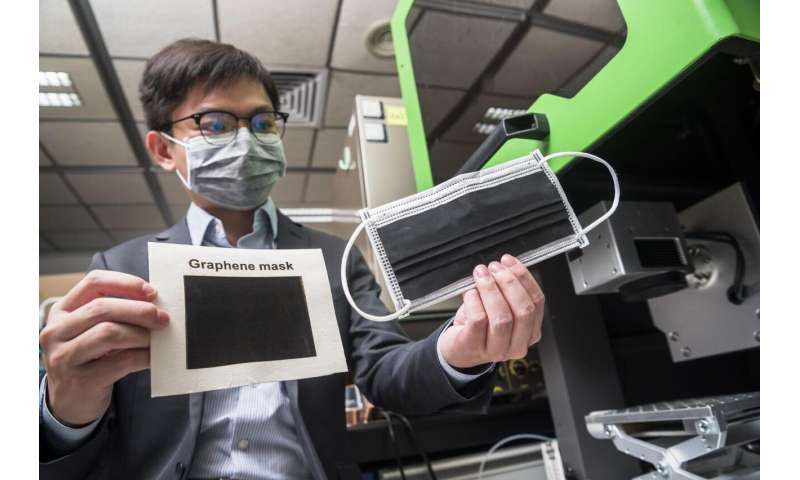#Researchers develop anti-bacterial graphene face masks
“#Researchers develop anti-bacterial graphene face masks”

Face masks have become an important tool in fighting against the COVID-19 pandemic. However, improper use or disposal of masks may lead to “secondary transmission”. A research team from City University of Hong Kong (CityU) has successfully produced graphene masks with an anti-bacterial efficiency of 80%, which can be enhanced to almost 100% with exposure to sunlight for around 10 minutes. Initial tests also showed very promising results in the deactivation of two species of coronaviruses. The graphene masks are easily produced at low cost, and can help to resolve the problems of sourcing raw materials and disposing of non-biodegradable masks.
The research is conducted by Dr. Ye Ruquan, Assistant Professor from CityU’s Department of Chemistry, in collaboration with other researchers. The findings were published in the scientific journal ACS Nano, titled “Self-Reporting and Photothermally Enhanced Rapid Bacterial Killing on a Laser-Induced Graphene Mask“.
Commonly used surgical masks are not anti-bacterial. This may lead to the risk of secondary transmission of bacterial infection when people touch the contaminated surfaces of the used masks or discard them improperly. Moreover, the melt-blown fabrics used as a bacterial filter poses an impact on the environment as they are difficult to decompose. Therefore, scientists have been looking for alternative materials to make masks.
Converting other materials into graphene by laser
Dr. Ye has been studying the use of laser-induced graphene in developing sustainable energy. When he was studying Ph.D. degree at Rice University several years ago, the research team he participated in and led by his supervisor discovered an easy way to produce graphene. They found that direct writing on carbon-containing polyimide films (a polymeric plastic material with high thermal stability) using a commercial CO2 infrared laser system can generate 3-D porous graphene. The laser changes the structure of the raw material and hence generates graphene. That’s why it is named laser-induced graphene.
Graphene is known for its anti-bacterial properties, so as early as last September, before the outbreak of COVID-19, producing outperforming masks with laser-induced graphene already came across Dr. Ye’s mind. He then kick-started the study in collaboration with researchers from the Hong Kong University of Science and Technology (HKUST), Nankai University, and other organizations.

Researchers develop anti-bacterial graphene face masks (2020, September 10)
retrieved 10 September 2020
from https://phys.org/news/2020-09-anti-bacterial-graphene-masks.html
This document is subject to copyright. Apart from any fair dealing for the purpose of private study or research, no
part may be reproduced without the written permission. The content is provided for information purposes only.
If you want to read more Like this articles, you can visit our Science category.
if you want to watch Movies or Tv Shows go to Dizi.BuradaBiliyorum.Com for forums sites go to Forum.BuradaBiliyorum.Com


